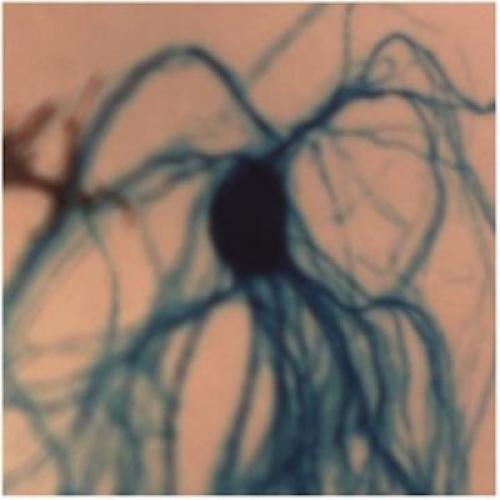Nature子刊:美国科学家表明恐惧记忆可以通过基因遗传给后代
美国埃默里大学等机构研究人员在一项新研究中表明,恐惧记忆会使实验鼠基因表达发生改变,这种改变可以遗传给后代,让后代的神经系统结构和功能作出“微调”,这有助于解释恐惧症患者对特定事物表现出的非理性恐惧。相关文章发表于2013年12月02日的《Nature Neuroscience》杂志上。

Nature子刊:美国科学家表明恐惧记忆可以通过基因遗传给后代
有些人会对特定的动物、场景等表现出特别的恐惧,医学上称为“恐惧症”。
美国埃默里大学等机构研究人员通过电击等手段让实验鼠对樱花的气味产生恐惧感,然后让它们进行繁殖。结果发现,这些实验鼠的后代乃至第三代小鼠都会对这种气味作出恐惧反应,即使人工授精产下的后代也不例外。
对第一代受电击刺激实验鼠的分析发现,鼠脑中负责察觉气味的区域出现了结构改变,而控制察觉气味的基因发生了“DNA甲基化”的表观遗传学现象,即在基因的DNA序列不发生改变的情况下,基因表达发生了改变;而实验鼠后代的脑结构和相关基因也出现了同样的改变。
研究表明大部分生活经验和技能只能通过后天传授教给后代;但他们的实验显示,一些创伤记忆可以通过基因遗传给后代,让后代的神经系统结构和功能作出“微调”,这有助于解释恐惧症患者对特定事物表现出的非理性恐惧。这种遗传可在一定程度上帮助后代避免特定伤害,但也可能增加恐惧症、焦虑症或创伤后应激障碍等神经精神疾病的风险。
研究人员下一步将重点研究恐惧信息是如何被“存储”在DNA上的,并进一步研究人类基因是否也受类似影响。
原文摘要:
Parental olfactory experience influences behavior and neural structure in subsequent generations
Brian G Dias & Kerry J Ressler
Using olfactory molecular specificity, we examined the inheritance of parental traumatic exposure, a phenomenon that has been frequently observed, but not understood. We subjected F0 mice to odor fear conditioning before conception and found that subsequently conceived F1 and F2 generations had an increased behavioral sensitivity to the F0-conditioned odor, but not to other odors. When an odor (acetophenone) that activates a known odorant receptor (Olfr151) was used to condition F0 mice, the behavioral sensitivity of the F1 and F2 generations to acetophenone was complemented by an enhanced neuroanatomical representation of the Olfr151 pathway. Bisulfite sequencing of sperm DNA from conditioned F0 males and F1 naive offspring revealed CpG hypomethylation in the Olfr151 gene. In addition, in vitro fertilization, F2 inheritance and cross-fostering revealed that these transgenerational effects are inherited via parental gametes. Our findings provide a framework for addressing how environmental information may be inherited transgenerationally at behavioral, neuroanatomical and epigenetic levels.

